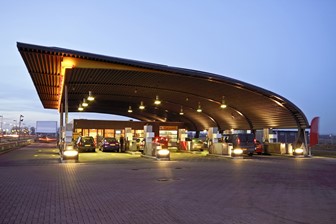Renewable & Low-Carbon Liquid Fuels Platform: Joint statement on the Fit for 55 package
ePURE joined other members of the Renewable & Low-Carbon Liquid Fuels Platform in reacting to the European Commission's so-called 'Fit for 55' package of climate and energy proposals:
The Renewable & Low-Carbon Liquid Fuels Platform considers the publication of the European Commission’s Fit For 55 package a step in the right direction; however, the proposals do cause some concerns as they fail to fully recognise the crucial contribution of renewable and low-carbon liquid fuels in the decarbonisation of transport and the value of multiple technological pathways to achieve 2030 and 2050 targets.
CO2 standards for cars – a missed opportunity to establish technology neutrality
The focus on tailpipe emissions from new vehicles hamper the transition potential to achieve climate neutrality. The revised proposal on CO2 standards for cars and vans regulation should therefore recognise the crucial role of renewable and low-carbon liquid fuels and ensure that all possible decarbonisation technologies are taken into account. This means moving away from a pure Tank-toWheel approach and towards Well-To-Wheel, which also considers the carbon footprint of the respective technologies. To this end, a voluntary crediting scheme for renewable fuels would respect the responsibilities of the different stakeholders, use existing institutions and processes to avoid complexity and bureaucratic burdens, while also increasing the effectiveness of the system through a voluntary approach.
Sustainable low-carbon liquid fuels are essential to the EU’s decarbonisation efforts and the transition to zero-emission mobility, providing security for consumers whilst Member States develop their respective infrastructures and transportation companies transform their businesses in line with the
2030 and 2050 climate objectives. To meet the 2050 climate-neutrality goal, the Renewable & Low-Carbon Liquid Fuels Platform believes that Europe and its consumers need a holistic plan where low-carbon liquid fuels, electrification and hydrogen in road transport sit side by side.
Carbon pricing in road transport
The creation of an Emission Trading System (ETS) for road transport, together with RED III and vehicle CO2 standards is expected to create a carbon price signal necessary to trigger the investments in the developments of Low-Carbon technologies for vehicles and fuels. However, the consequences for both citizens and businesses should be carefully addressed, therefore it is important to make sure they do not create a socially unfair burden.
